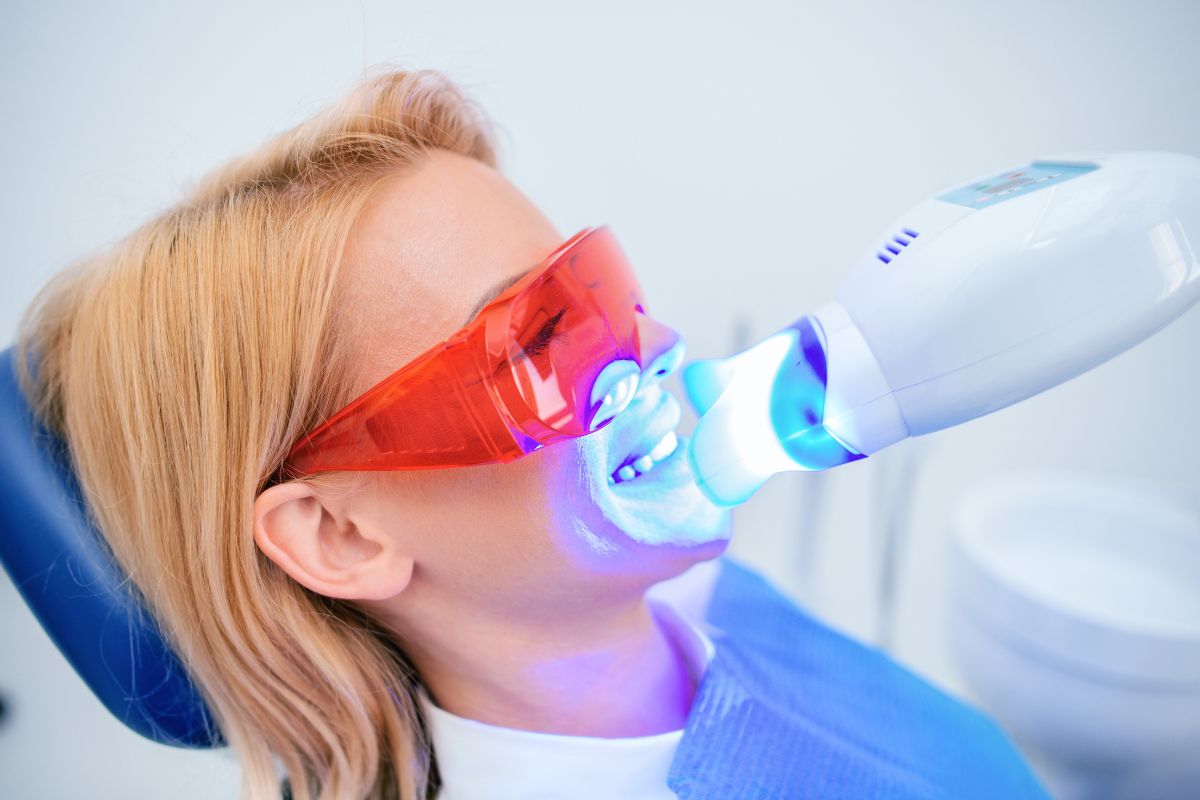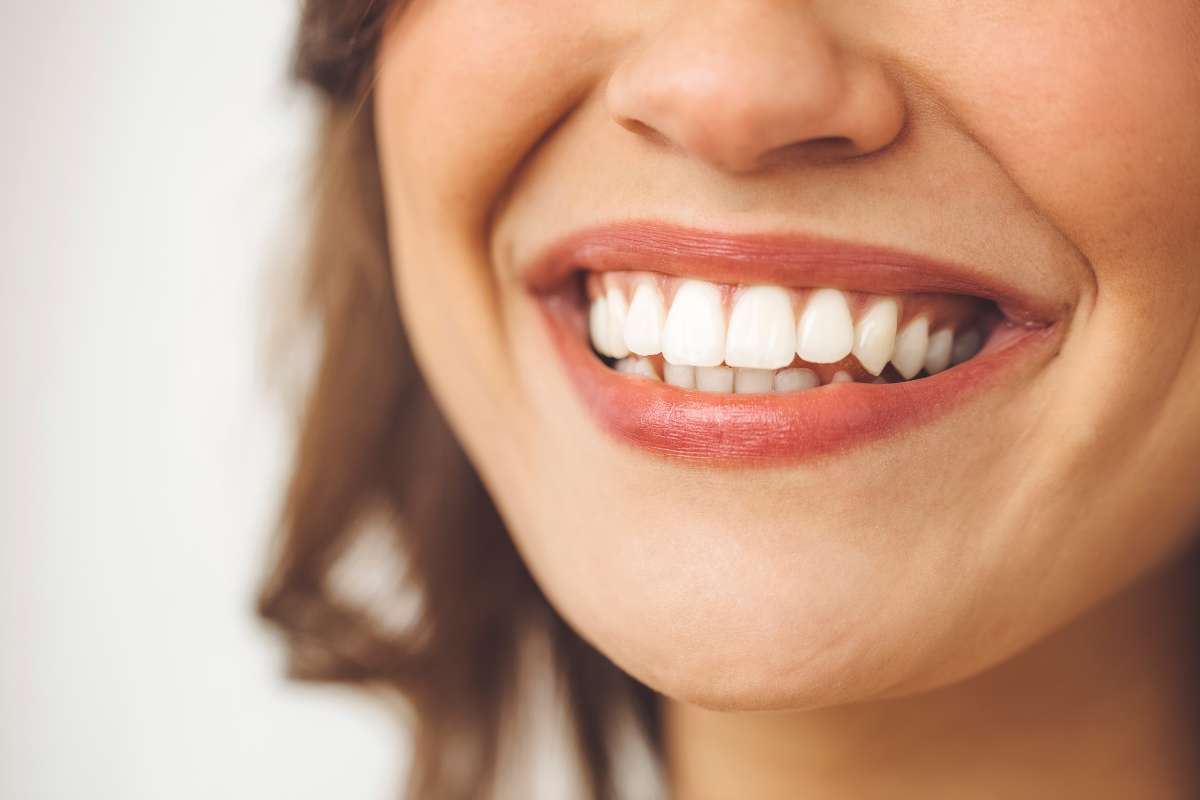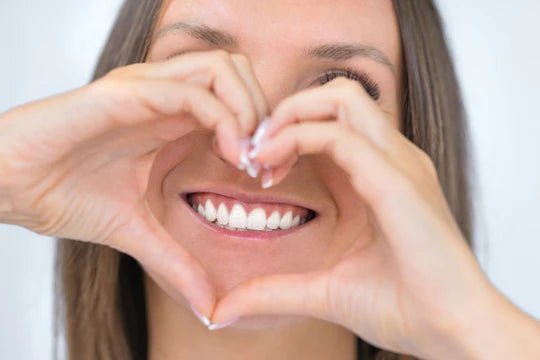Teeth Sensitivity After Whitening: 5 Simple Tips for Instant Relief
Ever experienced teeth sensitivity after your dental whitening treatment in Culver City? Don’t panic! It isn’t unusual. In fact, studies suggest that 60-90 % of patients who underwent teeth whitening complain about sensitivity.
This discomfort shouldn’t last for a couple of days, though.
So, let's talk about post-whitening sensitivity! This guide explores the reasons and offers solutions to help you get the most out of that newly achieved Hollywood smile.

Understanding post-whitening sensitivity
Sensitivity after a teeth whitening procedure can appear in different ways. Common sensations include:
- Sharp pain – a brief, intense feeling of pain that can be triggered by eating or drinking hot or cold drinks or food.
- Lingering discomfort – a throbbing pain in the teeth.
- Increased sensitivity – a heightened sensitivity to pressure or touch, especially when brushing or flossing.
How sensitivity occurs during teeth whitening has something to do with the tooth enamel’s reaction to the whitening agents, which typically involve hydrogen peroxide and carbamide peroxide.
Teeth whitening, specifically in-office whitening, requires a strong concentration (10-40%) of hydrogen peroxide. When this solution comes in contact with the enamel, the hard, outermost layer of your teeth, it causes oxidation and reduction of organic pigments. Here’s when the magic of teeth whitening happens.
Contrary to what others believe, teeth whitening doesn’t damage the enamel, because hydrogen peroxide whitens your teeth by simply breaking down the stain molecules.
Tooth sensitivity, according to a study, can likely occur depending on three things:
- How strong the whitening solution is (concentration of hydrogen peroxide)
- How long the treatment lasts
- And even the other ingredients in the product besides the bleach itself
Another study suggested a significant link between sensitivity and gingival recession.
To address tooth sensitivity concerns, there’s a concerted effort from different manufacturers to develop whitening gels with lower hydrogen peroxide (H₂O₂) concentrations. This approach aims to minimize the side effects associated with the formation of peroxide radicals, which can occur when using high-concentration bleaching agents.
How to soothe whitening-related discomfort
Experiencing tooth sensitivity after a successful dental cosmetic treatment can dampen the joy of achieving a brighter smile. For people who have natural tooth hypersensitivity, this can be even more heartbreaking.
Good thing, there are practical ways to address or minimize discomfort after or even before your teeth whitening procedure:
Check your teeth whitening options
While this article addresses post-whitening tooth sensitivity, we like to include a crucial stage in your teeth-whitening journey: choosing the most suitable whitening option.
Before whitening your teeth, your dentist in Culver City reviews your medical history to ensure it's safe for you and to recommend the best whitening option based on your individual needs.
If your teeth are naturally hypersensitive, you’d mostly be recommended other teeth whitening options. Professional teeth whitening options for people with sensitive teeth may include:
- Laser teeth whitening
- Custom teeth whitening trays
- Dentist-supervised at-home whitening kits/strips
These professional teeth whitening options are designed specifically for people with sensitive teeth. They use lower concentrations of bleach and incorporate protective measures to minimize discomfort and sensitivity during and after treatment.
Brush with a desensitizing toothpaste
The development of modern desensitizing toothpaste provided patients with an out-of-the-shelf remedy for sensitive teeth. Desensitizing toothpaste contains specific ingredients like potassium nitrate and strontium chloride, which help block pain signals to the tooth nerves.
As the science and formulation of desensitizing toothpaste continue to evolve, new ingredients and delivery methods help improve their effectiveness and comfort for users. For instance, a study found that desensitizing toothpastes containing potassium, stannous fluoride, potassium and strontium, potassium and stannous fluoride, calcium sodium phosphosilicate, arginine, and nano-hydroxyapatite are effective in relieving tooth sensitivity compared to those who didn’t receive treatment.
Here are some of the famous brands that offer desensitizing toothpaste:
- Colgate
- Sensodyne
- Fluoridex
- Crest
- Arm and Hammer
- Tom’s of Maine
For the best recommendations on oral health products, it’s essential to consult with your Culver City dentist.
Take note of the foods and drinks to avoid
It’s during the first 1 to 3 days when your teeth will be most sensitive. During this period, avoid foods and beverages that may be too hot, cold, or acidic for your newly whitened teeth.
Why?
Teeth whitening agents may increase the enamel’s permeability. In other words, it may slightly weaken and become more porous, allowing things like hot, cold, or acidic substances to pass through the tubules and irritate the nerves inside the tooth, causing sensitivity.
Use a soft-bristled toothbrush and don’t rush
Wait at least three to four hours before you brush your teeth after your whitening treatment.
Again, after whitening, your teeth might be a bit more sensitive to brushing. This is because the whitening process can temporarily make the enamel slightly more open. To avoid any discomfort, brush your teeth before your whitening appointment. Then, wait a few hours after your treatment before brushing again. And remember to use a soft-bristled toothbrush to avoid further irritation.
Stay away from extreme temperatures
Culver City summers can be scorchers, and reaching for that ice-cold drink after teeth whitening might seem tempting. But hold on! As mentioned, extremely cold drinks during hot temperatures can amplify tooth sensitivity following a whitening treatment. Opt for lukewarm beverages for the next few days, even under the Culver City sun.
Consult Our Dentist in Culver City
We understand the excitement of finally getting a bright, white smile. And it pains us to see patients experience sensitivity following a teeth whitening treatment. By understanding the causes of sensitivity and following the aforementioned tips, you can minimize discomfort and enjoy your dazzling smile worry-free.
If you’re ready to embark on your whitening journey but afraid that teeth sensitivity might get in your way, schedule a free consultation with us at United Dental Care in Culver City. Together with our dentist, we can discuss the best whitening option for you! We can help you achieve a radiant smile without worrying about sensitivity issues.
Why wait to get your teeth whitened? Book your appointment online to get that dream smile you always deserved.




 By:
By: 

